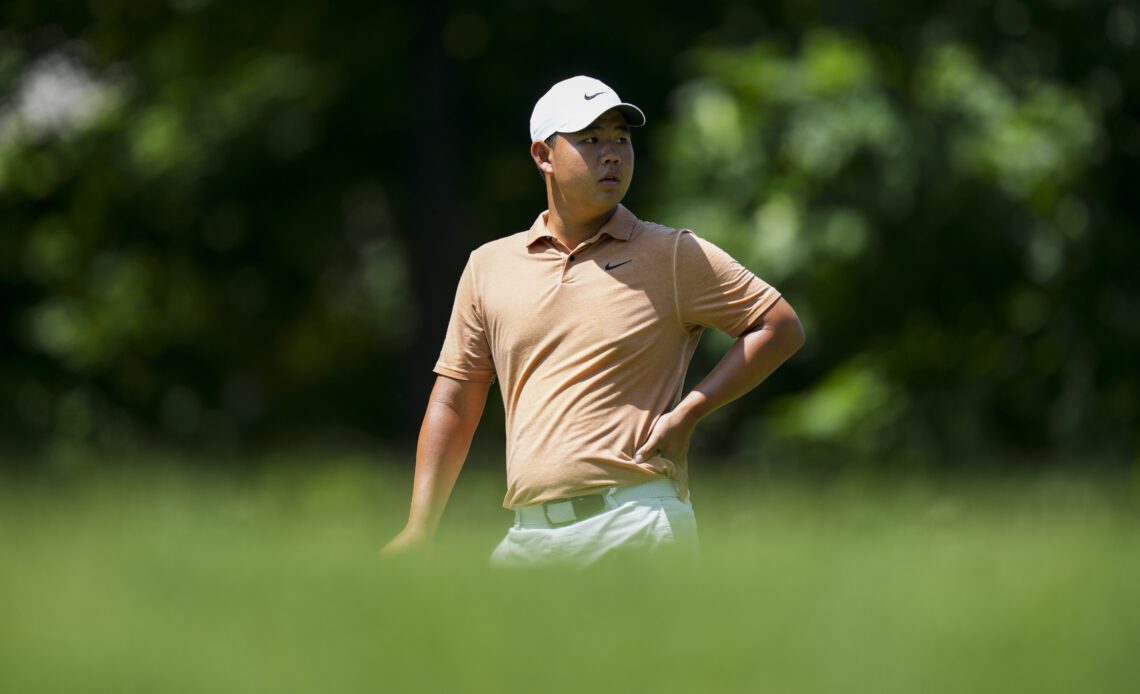Patrick Cantlay’s putter might as well be a pendulum swinging back and forth inside a grandfather clock, measuring time by the minutes it takes him to strike the ball.
His wiggling and waggling when standing over a putt, before finally pulling the blade back into pinball launch position, is maddening to witness. Playing the first two rounds of the Memorial Tournament with Billy Horschel and Hideki Matsuyama, Cantlay consistently took longer than his playing partners after settling over his ball at address.
At least the two-time Memorial winner is not a calendar whose timetable is counted in days, weeks and months, even if sometimes it feels that way.
Slow play is a hot topic on the PGA Tour, and Cantlay is the poster snail, his sluggish pace of play, mostly around the green, a burning issue during the Masters, when millions of TV viewers – and fast-moving Brooks Koepka playing in the group behind him – wanted to scream, “Hurry up, already.”
But while Cantlay is at the center of the slow play discussion, my thoughts on the subject go against the grain of those wringing their hands over concern that he and other slowpoke compadres create a negative perception that endangers fan interest and jeopardizes the health of the tour.
My alternative take goes like this: slow play is not an alarming issue for the Tour, but instead an individual frustration for fans.
More: Jack Nicklaus nails it; Slow play on PGA Tour is a poor form of selfishness
Tom Kim stands on the ninth fairway during the second round of the Memorial Tournament golf tournament at the Muirfield Village Golf Club. Mandatory Credit: Aaron Doster-USA TODAY Sports
Allow me to explain. Pace of play matters little on TV, which is how most fans watch golf tournaments. It doesn’t matter that amateur sensation Sam Bennett took forever to hit his approach shots at Muirfield Village Golf Club, regripping his club four and five times before beginning his backswing, because his group was not featured on the broadcast. If you don’t see slow play, does it really exist? Plus, TV minimizes the visual effects of slow play by cutting from player to player, a kind of slow-play sleight of hand.
As for slow play turning 4½-hour rounds into fivers, who besides the TV crew trying to make their dinner reservations really cares? I watch golf and seldom think, ‘This is taking too long. Time to mow the grass.’ I only exit the broadcast early if the leaderboard is a “Who’s He?” more than a Who’s…
..
Click Here to Read the Full Original Article at Golfweek…
